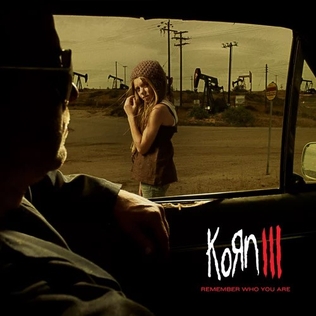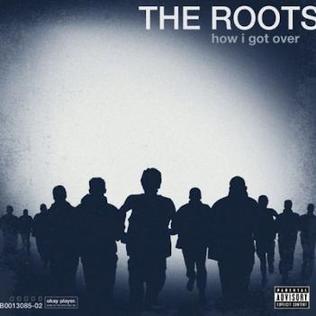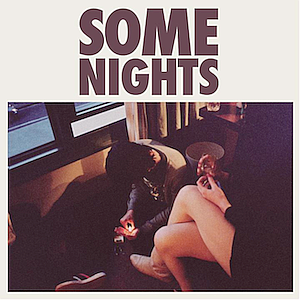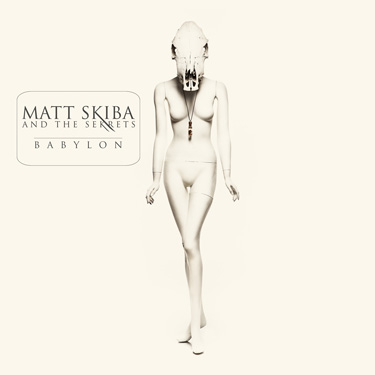Because real life doesn't always allow me the chance to give albums the proper 1,000 word treatment they deserve. KoЯn- KoЯn III: Remember Who You Are (**)
KoЯn- KoЯn III: Remember Who You Are (**)
People in their 20s remember a time where KoЯn made urgent and emotive music. It was more than a full decade ago to be exact. Since then, the Bakersfield quartet has really let themselves slide in the 00s, resulting in a band that’s merely a shadow of its former self. This is why KoЯn III: Remember Who You Are is such a calculated return to their sound circa 1996. Producer Ross Robinson is back, Fieldy’s scratchy bass work runs rampant, and Johnathan Davis still employs his tried and true vocal technique of whine-to-spastic freak out. Unfortunately, rather than coming across as rejuvenated, the group seems tired. Though Robinson gives the group great sonic spacing, and some added crunch to Munky’s guitar work, KoЯn III flounders because Davis comes across like a cranky 10 year old (“Why don’t you just leave me alone?/My heart feels free from the past…”) and the music has lost it’s vivaciousness. Where instruments used to smash into each other and squeal tortuously, the group has settled for simply constructing forgettable stabs of power chord gruel. While the album’s stripped down approach is a welcome change, fans can’t help but remember a time when KoЯn inspired a sense of dread, rather than a sense of apathy.
Key Cuts: Pop A Pill, Fear Is A Place To Live, The Past M.I.A.- /\/\ /\ Y /\ (**½)
M.I.A.- /\/\ /\ Y /\ (**½)
Maya Arulpragasam is fast approaching that realm in art where concept trumps execution. Blame it on the truffle oil French fries, or her new found lack of sonic direction, but /\/\ /\ Y /\ fits that bill to the tee. Bent on crafting a “digital ruckus,” /\/\ /\ Y /\ leaps between seizure inducing beats and chainsaw-inspired white noise, dousing the flames in liberal amounts of auto-tune filtered gasoline. On paper, it sounds exciting dangerous. Yet her overwhelming need to soap box about the evils of technological over stimulation fails to inspire any sort of digital mosh pit, undermining her mechanized manifesto. “Steppin’ Up” is an ugly amalgam static shuffles and computerized drawl, while “XXXO” finds Maya embodying a lifeless, surface level dance pop number, rather than satirizing one. While her pervious album, Kala, came across as eclectic, /\/\ /\ Y /\ reeks of disunity, mostly because she rages against the information age in one moment (the stabbing keyboard drivel of “Teqkilla”) and embodies it the next (the reverby haze fest of “It Iz What It Iz”). Still, Maya finds a solid groove within the album’s last quarter, riding on the spunky Suicide sample of “Born Free” and the minimalist electro-throb heartbeat of “Space.” While it’s not exactly ideal waiting for that last part of /\/\ /\ Y /\, it reminds listeners that when M.I.A. wants to make gripping music, she can. She just needs to get over herself and her Googlephobia.
Key Cuts: Born Free, Tell Me Why, Space The Roots- How I Got Over (****)
The Roots- How I Got Over (****)
It was confusing seeing The Roots as Jimmy Fallon’s house band, especially considering Fallon is horrendous at late night and The Roots create socially conscious music. Yet all that extra jamming must have really helped the Philadelphia hip-hop institution rekindle the love for their inner cool. While their last two records were immediate and heavy slices of protest, How I Got Over mines the laid back jazz atmospheres of their early records while looking towards an uplifting and hopeful future. The album is a seamless mix of fluid bass work, twinkling piano, and indie samples (Joanna Newsom, and Monsters Of Folk included), affirming that The Roots are the kings of low-end chic. They definitely wear the crown well. “Dear God 2.0” sports airy beats and hypnotic bass as Black Thought contemplates the afterlife, “ All I’m trying to do is live life to the fullest/They sent my daddy to you in a barrage of bullets/Why is the world ugly when you made it in your image?/And why is livin’ life such a fight to the finish?” Elsewhere, John Legend lends his jumpy piano to the expansive late album cut “The Fire,” while the smoky barroom ivories of “Walk Alone” show that poignancy can come from subtly. Yes, ?uestlove still commands the drum kit with a deft prowess and a restrained presence, but what really makes How I Got Over stand out is The Roots’ ability to tap into incredibly human struggles. Their music is inclusive in message and compassionate in scope. Ultimately, it helps their album comes across as a lesson in soulful, social poetry, rather than just another record by Jimmy Fallon's house band.
Key Cuts: Walk Alone, Dear God 2.0, The Fire
How Does British Athletic Performance Impact National Identity?
-
Influence of Athletic Performance on National Identity Athletic performance
deeply intertwines with national identity, shaping how citizens feel about
thei...
3 months ago














2 comments:
I saw the Roots play in Philly my first weekend here with the Goo Goo Dolls it was so weird hearing hip-hop artists playing like a jam band, to be quite honest it sounded more like Phish with a free form jazz ensemble, and was pretty disappointing.
Moreover, I was not really feeling their new songs, the messages are still there but, I don't know I feel like socially conscious and entertaining hip hop is passing the roots by.
That sort of sounds how The Mars Volta operate from time to time. Honestly, I'm shocked that they decided to fully embrace that type of live experience as opposed to something a bit more structured.
With regards to their album, I actually think it's been their most cohesive effort in a while. While I appreciate the urgency behind Rising Down and Game Theory, the overall consistency of How I Got Over really struck deep with me. Sorry you weren't a fan.
Post a Comment